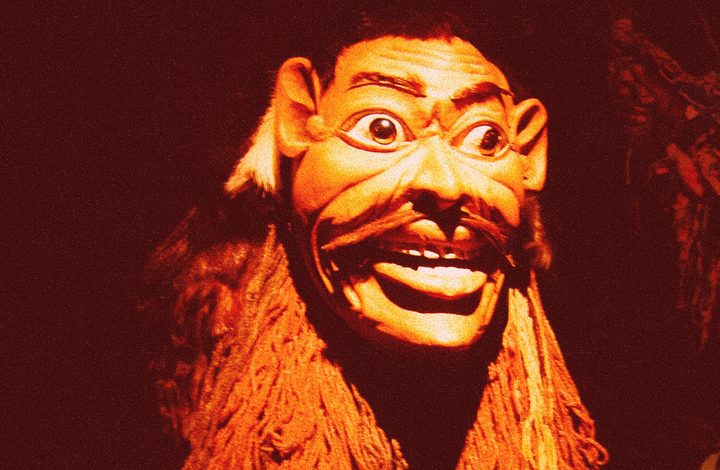Behind Malawi's increasing witchcraft accusations, growing desperation
– Nicole Orttung
Witchcraft accusations are on the rise in Malawi, challenging the legal and political system to address startling assaults on human rights.
In 2009, Magistrate Damson Banda of Malawi had the delicate task of presiding over the trial of three accused witches. Responsible both for applying a law that rejects the existence of witchcraft and serving a community that fears witches, Banda clarified his own objective: to prevent violence. As he explained in 2013 to Adam Ashford of the University of Michigan, Banda saw his duty as ensuring “that conflicts were resolved within the framework of the law, without people taking the law into their own hands and committing crimes against suspected witches.”
In this particular 2009 case, Massautso Kasito had accused his father, sister, and son of using witchcraft to murder a relative who had died in unusual circumstances. These accusations couldn’t just be dismissed offhand. Vigilante justice — including witch-hunts — flourishes when institutions fail to serve the justice that society demands.
The nearly three-quarters of Malawians who believe in witchcraft see evidence of bewitchment in grave illnesses, inexplicable deaths, and sudden financial ruin. In their eyes, scheming, powerful witches brought about these misfortunes. Contrarily, international human rights observers consider the suspected witches to be victims rather than aggressors, noting that the accused endure unjustifiable mistreatment, abuse, and ostracism by their communities.
In the face of these conflicting worldviews, how can justice be served? Belief in witchcraft is protected under the Universal Declaration of Human Rights as part of its guarantee of “freedom of thought, conscience, and religion,” but this protection does not prevent discriminatory and abusive actions against suspected witches. The human rights of the accused witches must be preserved, even as their accusers deny their humanity altogether.
The United Nations estimates that each year, thousands of people are accused of practicing witchcraft — and this number is rising. In Malawi, a country in southeast Africa that is home to about 16 million people, violent witch-hunts occurred about once a week in 2011. The fate of accused witches ranges from stigmatization, to banishment, torture, and even death. Malawi isn’t the only country where witches are violently persecuted, as harrowing reports from Angola, Nigeria, and the Democratic Republic of the Congo attest.
Overwhelmingly, the individuals most often charged with witchcraft are those least able to defend themselves: elderly women, young children, and the disabled. Of the 45 witchcraft cases handled by one Malawian legal clinic, only five concerned adult men. A recent UNICEF report sums up the pattern, observing that “important or rich people are never accused in public. Instead, it is always the worst off and most vulnerable … [and] there are increasing numbers of accusations against children.”
The legal system, which would ideally protect the downtrodden, has a precarious role in a society where preacher-prophets and traditional healers have a stronger presence and demand greater respect than laws and courts established during colonialism. Religious and other spiritual leaders stand to gain from the business of persecuting witches. Prophet Helen Ukpabio of Nigeria is just one of the many religious leaders who have made careers detecting and punishing witches, generating personal profits and fame along the way.
Nonetheless, experienced justices, such as Magistrate Banda, have found that their position can give them a platform to challenge the persecution of witches. Banda insists that suspicion or belief is not sufficient proof for a murder trial, and children’s testimony must always be corroborated. Therefore, in the 2009 case, he did not find any of the three accused to be guilty of witchcraft, but he took care to address the accusations thoroughly.
Witchcraft accusations cannot be written off as a lingering traditional practice. They are a contemporary reaction to “major social and economic evolutions,” and are often tied to a breakdown within traditional family structures and economic hardship. In this case, the magistrate patiently heard family grievances and advised the family on how to move forward.
Some international organizations have been able to make headway as well. A mobile legal clinic was established in Malawi in order to resolve witchcraft accusations through mediation, thus preventing mob violence. Engaging opposing parties in mediation proved to be “a powerful means of uncovering and resolving the roots of intra-familial and intra-communal conflicts which often manifest as witchcraft accusations,” observed Chi Mgbako and Katherine Glenn, who studied the clinic. A critical component of the legal clinic’s work was to inform Malawians that accusing people of witchcraft was actually illegal — a fact known to barely 15 percent of the population. Though the clinic was able to deter many accusers, boosting awareness of the law is not a comprehensive solution when the law is at odds with popular belief and the underlying causes of accusations go unaddressed.
In Malawi, where there is one medical doctor per 50,000 people and national life expectancy averages just 36 years, witchcraft offers an explanation for why tragedy strikes. When families are faced with devastation — from young death to sudden financial ruin — it’s tempting to find a scapegoat. The justice system can step in to prevent one tragedy from taking additional victims.
* * *
The Sources: Adam Ashforth, “Witchcraft, Justice, and Human Rights in Africa: Cases from Malawi,” African Studies Review 58 (2015):1.
Chi Mgbako and Katherine Glenn, “Witchcraft Accusations and Human Rights: Case Studies from Malawi,” George Washington International Law Review 43 (2012):389.
Photo courtesy of Flickr/Pablito Vancouver
